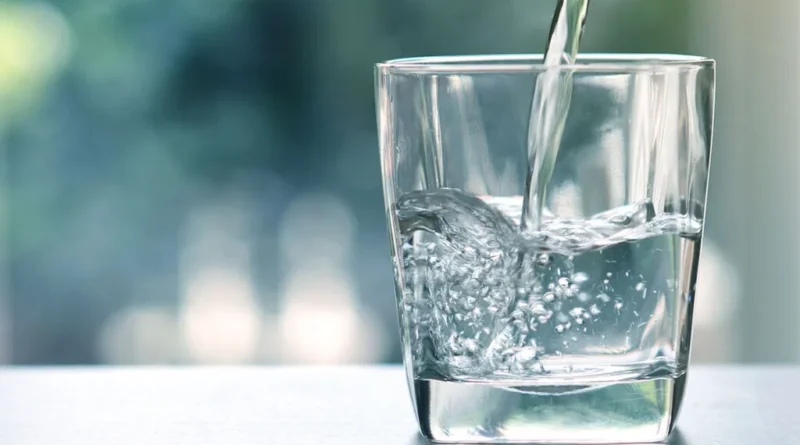Drinking Water Quality Decides Your Health and Wealth. Find Out How
Drinking Water Quality Decides Your Health Condition [And Your State Of Wellness]
When it comes to your drinking water, the drinking water quality, to a very large extent, decides how healthy you and your family remain.
It is not for nothing that water is called the “elixir of life”. Water is perhaps more important than fuel. It is widely known that 71% of earth is covered in water (hence the name “Blue Planet”) and up to 60% of the human body is made up of water.
And when it comes to your drinking water, the drinking water quality, to a very large extent, decides how healthy you are. That, in turn, decides your wellness factor, which, in turn, helps you attain better physical and mental health outcomes, so that instead of just surviving, you are thriving and actually excelling.
Thus, your drinking water, also known as potable water, needs to be absolutely SAFE from all angles.
Drinking water needs to be safe, not just for the purpose of drinking, but also preparation of food and other related uses. Access to safe drinking water which is also pure is extremely important. However, the sad truth is that access to clean, safe and pure drinking water is a worldwide problem and issue.


This boy is drinking from an open water body, but it certainly isn’t safe, as the water may not be absolutely pure, and it poses grave health risks, as the water may have poisonous contaminants. Water purifiers ensure that you get the purest drinking water quality possible.
Drinking Water Quality Matters More than Ever
Perhaps the best global ambassador for making people understand the importance of safe drinking water is a young girl called Gitanjali Rao. Her story [watch her video below] is very inspiring for everyone, and highlights how important drinking water quality is for your health.
Young Indian-American scientist and inventor Gitanjali Rao was featured in the cover of American TIME magazine’s 2020 first-ever “Kid of the Year“. Just 15 years old, Rao was selected from a field of more than 5,000 Americans, ages 8 to 16.
Young Rao spoke about her “astonishing work using technology to tackle issues ranging from contaminated drinking water to opioid addiction and cyberbullying, and about her mission to create a global community of young innovators to solve problems the world over”.
Even before the TIME magazine honor, brilliant Rao had already made it to the ‘2019 Forbes 30 Under 30 list’ and she hadn’t even made it to high school then.
Young Rao would watch her parents try to test their drinking water with a test strip kit at home–something millions around the world still do, perhaps for want of knowledge of the options available. The results were, obviously, inconclusive and unreliable. Laboratory testing of their water sample would have easily revealed how unsafe the water really was for drinking purposes.
In 2017, Rao, then 11 years old, was named ‘America’s Top Young Scientist’ for the design of a small, mobile device that tests for lead in your drinking water.
Tethys is the name of Rao’s invention, very appropriately and naturally named after the Greek Titan goddess of clean water. Tethys consists of a 3D-printed box, about the size of a deck of cards, and contains a battery, bluetooth and carbon nanotubes. The idea for Tethys came to Rao when she read about how similar technology can detect hazardous gas in the air. Actor and activist Angelina Jolie interviewed Rao for the TIME Cover Story.
What Factors Determine Drinking Water Quality?
There are several factors that determine what constitutes good drinking water quality. The problem, of course, as in most cases, lies with human beings themselves, and we will explain that part in a bit.
The presence and quantity of contaminants is a major factor that determines drinking water quality. Physical, chemical and biological factors such as pH and conductivity, number of salts present and the presence of nutrients, also determine water quality. Dissolved oxygen, turbidity, bioindicators, nitrate chemicals, and water temperature are also among the multiple factors that determine what constitutes good drinking water quality.
However, we human beings, to a big extent, influence most or all these factors. We humans discharge our waste in water and add all kinds of contaminants that are not naturally present in water. The result: Contaminated Drinking Water which is downright harmful to you and your family’s health.
Boiled Water vs. Filtered Water
Is boiling water better than filtering? The short answer to that question is: No. As per experts who have compared boiled vs filtered water, it has been found that boiling water isn’t enough to completely purify water because it leaves harmful contaminants such as lead and chlorine. Even when water is boiled to a sufficiently high enough temperature, there is no guarantee that such contaminants will be removed. Thus, filtered water is better for your health and comes with many benefits compared to boiled water.
So, will a Water Filter remove all contaminants?
That depends on the quality of the water filter you choose to use. With ultrafiltration membrane technology, water can be purified and bacteria and viruses removed. Ultrafiltration is supposed to remove over 99.9% of bacteria, viruses, giardia and cryptosporidium and waterborne protozoa. Experts say this technology can also filter out heavy metals like lead and disinfectants like chlorine.
However, the problem with even the best water filters is that they are not designed to filter out bacteria that will invariably grow on the filters over a period of time. So, no matter how well you maintain your water filter, there is always the lurking danger of bacteria growing on the filters themselves.
Your Drinking Water and COVID-19 Virus
With the world ravaged from the COVID-19 virus pandemic, many across the world have been worried over obvious concerns about possible links between drinking water and COVID-19 virus spread. Indeed, the transmission from COVID-19-contaminated water to humans is an emerging concern. A recent study has confirmed that SARS-CoV-2 RNA was detected in inflow wastewater, although no such confirmation has been obtained for outflow wastewater. The existence of SARS-CoV-2 in water influents has been confirmed, but it seems not enough studies have been conducted to decisively say whether the COVID-19 virus can survive or infect after the disinfection process of drinking water.
As of now, there is no evidence to suggest that the virus that causes COVID-19 can spread to people by consuming treated drinking water. Generally, water treatment plants, worldwide, use disinfectants and filters to remove or kill germs and viruses, like that causing COVID-19. Even so, more studies with respect to drinking water are clearly the need of the hour.
As far as swimming is concerned, the World Health Organization has said that “Water or swimming does not transmit the COVID-19 virus. The COVID-19 virus does not transmit through water while swimming. However, the virus spreads between people when someone has close contact with an infected person. Avoid crowds and maintain at least a 1-metre distance from others, even when you are swimming or at swimming areas. Wear a mask when you’re not in the water and you can’t stay distant. Clean your hands frequently, cover a cough or sneeze with a tissue or bent elbow, and stay home if you’re unwell.”
Water Filter vs Water Purifier: What is the Difference?
This is indeed a very frequently asked question. Basically, the biggest difference between the two seems to be how “virus” comes into the equation.
Generally speaking, while water filters tend to remove parasites, silt, dirt, debris, particles, protozoa, bugs and bacteria, they do not filter out viruses. That is because viruses are too small to be stopped by a water filter.
A water purifier, on the other hand, is designed to remove not just protozoa, bacteria and other contaminants, but also viruses, thus ensuring a much higher level of safety of your drinking water.
Also, since water purifiers involve such refining processes like UV treatment, refining, deionization, and Reverse Osmosis (RO), water purifiers tend to cost more than water filters, but the higher cost seems to be worth bearing, since you simply cannot and should not take any chances with the water you drink.
On balance, water purifiers definitely take the march and score over water filters, as far as your drinking water quality is concerned…
Though the ultimate call about choosing between a water filter vs water purifier for your kitchen or home lies solely on you, our honest advise definitely squarely tilts the scales in favor of a good water purifier over any water filter.
In fact, we have done the heavy lifting for you and listed the best water purifier options for your kitchen available on the market, and, in general, for all your drinking water needs.
So, How do I know which Water Purifier to choose from?
Given that the challenge of removing viruses and all sorts of contaminants from drinking water is always a global work in progress, the methods and technologies involved in ensuring that your drinking water quality is absolutely pure, have also kept changing.
Also, given the variety of water purifiers available on the market depending on your budget and the method and purification technique involved, it is truly a daunting and difficult task to choose the right type of water purifier for you and your family.
To make things easy for you to choose the best type of water purifier for you and your family, here’s the best guide for you and your family. This best guide will make your buying decision really easy. After all, nothing is more important than your good health and that of your family’s. The best and correct water purifier can make the vital difference between bad health and excellent heath.
Now that you are equipped with all the detailed knowledge and genuine information above, we are sure that choosing the best water purifier option for your kitchen for you and your family from this best guide link would be much easier now than it would have been otherwise!



